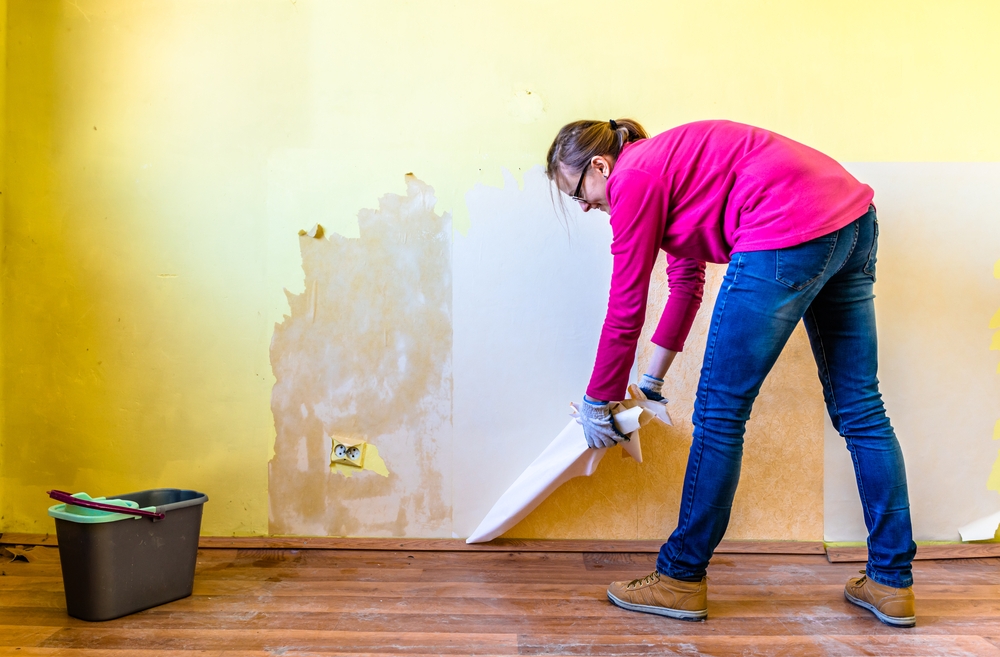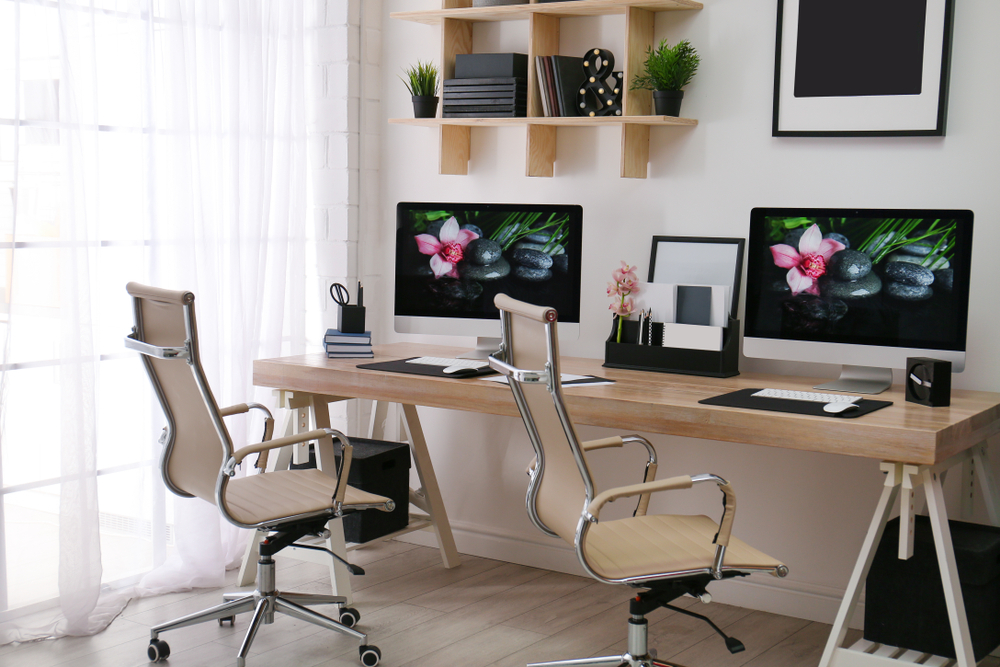|
August Newsletter - The most important factors for homebuyers when looking for a property
In this month's edition, we start off by revealing the most important factors for homebuyers when searching for a new property.
We also ponder whether Boris Johnson's appointment as Prime Minister will have an effect on the property market, we look into how damaging disrepair can be to homebuyers looking for a home and finally, if you're looking for tips on designing your ideal home office space, why not read our guide?
The most important factors for homebuyers when looking for a property

For many of us, when we decide to move to a new home there will be many factors to consider, which can range from new work commitments, to growing family needs or simply the need for better quality of life. A new survey from Broadband Choices has discovered the five key reasons as to why people select a location for their new home, which could form a useful list for current house-hunters.
1) Safety First
Whether you’re staying put or moving home, crime will always remain a key concern for the majority of us and with 84% of respondents to the Broadband Choices poll listing crime as a crucial factor this still rings true. Knowing that your home and possessions are in an area with low crime rates is obviously very attractive, with low crime rates correlating to strong house prices and the converse also true.
2) Commuting Commotion
Getting to and from work, as well as freely being able to see friends and family, is of course extremely important when deciding where we would like to live. Amongst correspondents, nearly three-quarters mentioned transport links as one of their decision points for a location to live within. Living within close proximity to a tube station, for example, can add £42,000 to the price of a home, according to research from Nationwide.
3) A Quality Connection
Unsurprisingly in these modern times, a strong internet connection which will allow broadband and television streaming services such as Netflix and Amazon Prime stands at third in the list of buyer priorities when searching for a new home. With 69% of people mentioning a strong internet connection in the poll, many of whom stating that they would pay over-the-odds for a property with a guaranteed superfast broadband connection, it would seem that for home-sellers updating your broadband could actually help in the process of finding a buyer.
4) Top Of The Class
For those with families, schools are an extremely important consideration; with catchment areas and the competition around catchments for the best schools being an important factor for both families, and those planning on families in the long term. Just over half of correspondents listed schools as a deliberation in their home buying decision, with recent studies showing that homes in catchments for schools with Ofsted ratings of 1 can cost almost £40,000 more than those with Ofsted rating 2.
5) Shop Local
As well as transport links ranking highly in the list of priorities for buyers, local shops and amenities also place highly with just over a third of people stating that living close to shops and amenities is a significant factor in their property search.
Does the Prime Minister's appointment affect the property market?

The United Kingdom now has a new Prime Minister which moves us on swiftly from Theresa May’s reign as our second-ever female leader. Love him or loathe him, Boris Johnson is now leading the country into a historic era in terms of relations with Europe and the rest of the world. With the appointment of Johnson comes a step-change in political policy, but what does his appointment mean for the property market, if anything?
During the midst of his campaign to become Prime Minister, Johnson made some proposals which could have far-reaching consequences for the property market – many of which could be extremely positive.
One of the key proposals that the man dubbed Bojo has put forwards revolves around stamp duty; for properties that cost less than half a million pounds stamp duty would be completely cut, and at the other end of the scale properties valued at over £1.5m would see rates cut from 12% to 7%. This latter proposal, in particular, could have a welcome impact on housing in the capital city due to the higher values of property prevalent throughout London.
These changes would be welcome to all in the property sector and could potentially signal an upsurge in property transaction levels, should they come into place. For the lettings market also, which has been subject to many legal changes in the past few months, this incentive could lead to growth.
The new Housing Minister, Robert Jenrick, has decried his modus operandi for property as “We will focus relentlessly on boosting supply and homeownership,” adding that “As the Prime Minister has made clear, we’re determined to close the opportunity gap and give millions of young people the chance to own their own homes.”
As well as appointing a comparatively youthful Housing Minister (Jenrick is the first cabinet minister to have been born in the 1980s), Boris Johnson has also appointed Sir Edward Lister as Chief of Staff. With Lister’s former employment being as chairman of Homes England, he brings with him a wealth of property insight to one of the top cabinet positions, which may benefit the industry in the long-term.
It seems that the sentiment amongst estate agents is positive with regards to Johnson’s appointment with Iain McKenzie, the Chief Executive of The Guild of Property Professionals, affirming that: “I am in favour of anyone who is going to improve sentiment or confidence in the housing market. Current economic data is strong, but the uncertainty of Brexit has caused stagnation in the market. Mr Johnson’s commitment to ‘deliver Brexit’ on 31st October with a new ‘can do’ spirit is therefore very much welcomed.”
How much does disrepair put off potential homebuyers?

When viewing a property, we’re all on the lookout for anything and everything that needs fixing or could use a bit of work.
While we’d all love to find a home that requires no work at all, chances are whenever you buy a property, it will come with its fair share of needed repairs.
But what type of damage to a home is most commonly a deal-breaker for prospective buyers? Well, GoCompare has sought to find this out.
New research from the comparison site has quizzed people on which types of disrepair would lessen their enthusiasm for a home and what would completely kill their interest in a property altogether.
It was found that damp was the biggest hurdle for buyers, with a huge 69% of survey participants stating that signs of damp on the walls and ceiling would force them to withdraw their interest in a home. This is understandable as damp left unchecked can lead to some very serious structural issues.
Not too far behind in the survey results was bad odours at 63% said that smells such as damp, food, cigarettes or pets would be a deal-breaker.
Rotten windows and peeling paintwork took 3rd place in the results, with 59% saying that they would not put in an offer if they spotted these blemishes on a home.
As expected, not having a space to park your car is a big issue for 56% of buyers and it is no surprise that in today’s always-online world that 53% desire a high-speed internet connection. The same percentage of participants would be put off a home if there was any work on the property that was uncompleted.
Some of the other negatives that made the list were neighbours with a messy garden (48%), a dirty interior (46%), outdated electrics (46%) and poor natural lighting (43%).
GoCompare Insurance spokesman – Ben Wilson – offered his comments on the findings of their research, stating: “Buying a home is a major investment and most people are put off by outdated properties or those in a poor state of repair. While dated décor can be remedied easily and relatively cheaply, major flaws from poor maintenance or badly botched DIY can be expensive to put right,
“A grubby home and untidy garden may suggest the current homeowners are not only bad at housework, but may have neglected essential maintenance to the property."
Read our top tips to designing your ideal home office space

With businesses offering a greater level of autonomy and flexibility to their workers than ever before, as well as millions who are registered as self-employed, many of us will have office spaces in our homes. These spaces are vital to our productivity, and we have therefore put some of our favourite design ideas together in order to make your home office a hotbed of efficiency.
Nail the basics
When designing a home office, it can be easy to get caught up in the design aesthetic first and foremost, but the basics of a suitable desk and comfortable chair are not to be overlooked. These two pieces of equipment could make your working-from-home bleak or blissful, so take the time to choose wisely. When choosing your seat, ensure that the height and lumbar can be fully adjusted; your thighs should be at a right angle to the floor and your feet totally flat to provide the most ergonomic seating position.
Don’t neglect storage
The old adage of ‘tidy space, tidy mind’ is prevalent for a reason – we tend to work best when we’re in comfortable, organised spaces. It’s easy to forget that a home office will need to have masses of storage in order to store your working documents, as well as any accoutrements you need on a day-to-day basis. When planning your home office, incorporate space for storage which includes shelving, cupboards and filing cabinets.
Plan for success
When redesigning any room, making a floorplan and laying out how the area to be renovated will be utilised is key, and this remains true for home offices. Consider how the space will be used; for example, will you be having customers or business partners visit your home office? If this is the case, you will have to consider extra seating, from a separate area to simply having chairs in the office which can be pulled up to your desk.
Create an oasis
Your home office should be a space that you want to visit; therefore, creating a pleasant and attractive room should be high on your priorities to encourage you to use it. Recent studies have suggested that using greenery in our workspaces can make us happier and improve cognitive functions, so adding plants or herbs in your office space are an easy method to incorporate some natural elements. In line with the greenery, keep the general feel of your home office light and airy by keeping walls and décor neutral, perhaps with one simple accent wall in a colour such as navy blue, which is supposed to help with concentration.
<< News
|
|